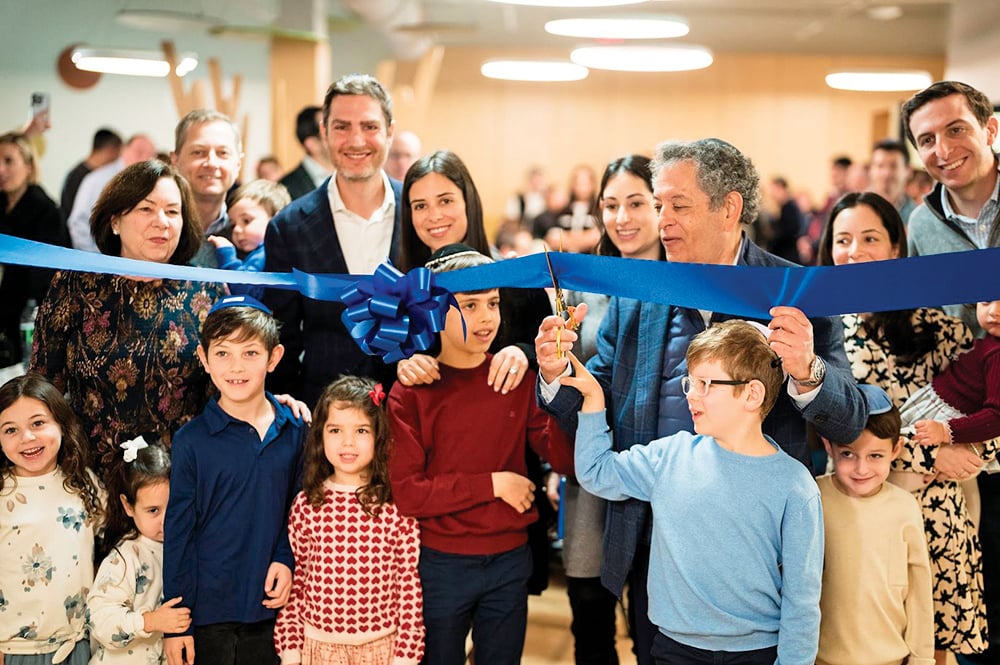
“If you build it, they will come.” The famous movie quote has become reality in Englewood as The Moriah School community celebrated the Chanukat Habayit for their new building this past Sunday. The opening of The Zahava and Moshael Straus Early Childhood Center is a culmination of years of dreaming, planning and creating the perfect space for students to thrive.
Head of School Rabbi Daniel Alter shared that the school’s circumstances have changed dramatically since the school leadership conceived of this project with the Straus family 10 years ago. “At the time we were interested in creating a facility whose energy would attract new students. Today as it opens, what was a luxury has become a necessity because of our growth in census in recent years.”
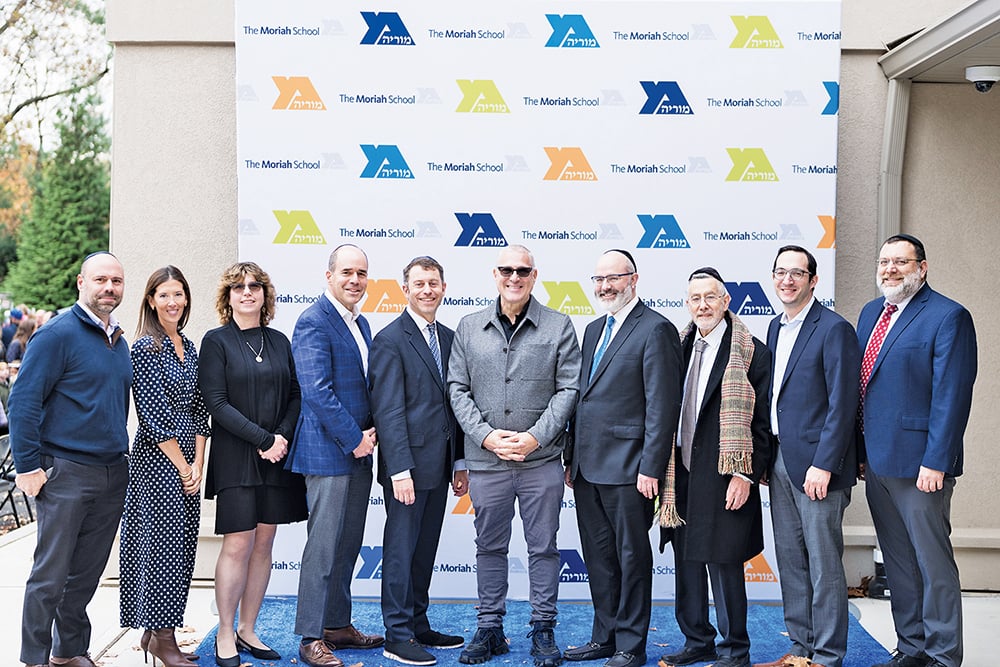
Director of Early Childhood Divsha Tollinsky explained that the Strauses wanted to enhance the Early Childhood experience at Moriah. Their grandchildren were starting at the school and they wanted to contribute to their success in this way. She echoed Rabbi Alter, that “we didn’t need [a new building] at the time, but wanted to make a push for Moriah to be a real community school, with families from every shul in Englewood.”
However, when families fled New York City during Covid, many chose to settle in Englewood and Moriah saw a huge boost in its student body. “Now that the construction is finally complete—we really need it—we are bursting at the seams,” shared Tollinsky. Moriah’s Early Childhood doubled in size from the influx of new families, and now boasts four classes per grade in toddlers, nursery, pre-k and kindergarten—16 classes totalling over 300 children.
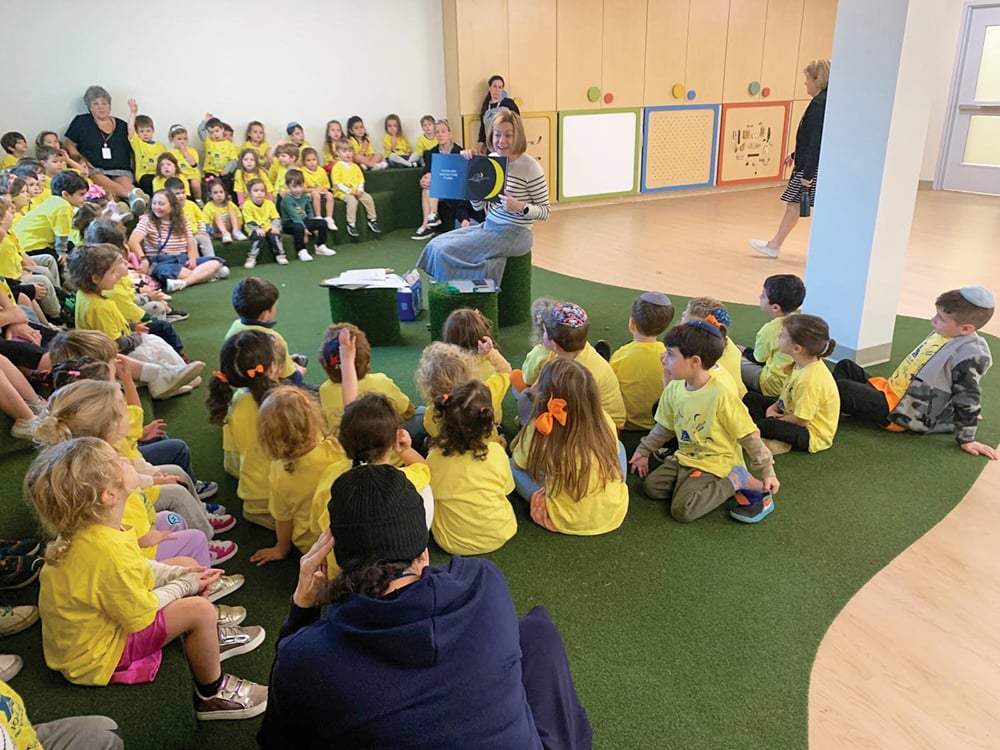
The new Early Childhood Center extends from the main building, opening into The Lerer auditorium, a large, communal space with high ceilings and abundant windows, flooding the room with light. Large carpeted stairs line two of the walls and serve as seating for students. The space features a rock climbing wall, a magnetic wall, a pegboard wall and more—even a menagerie for live animals. Everything is interactive, highlighting Moriah’s philosophy of learning through play. “Everything has a purpose and was built intentionally for our early childhood students,” shared Director of Development Erica Tannenbaum.
The large windows look out onto what will be the new athletic center, the other part of the construction project the school has embarked on, to be completed later this year.
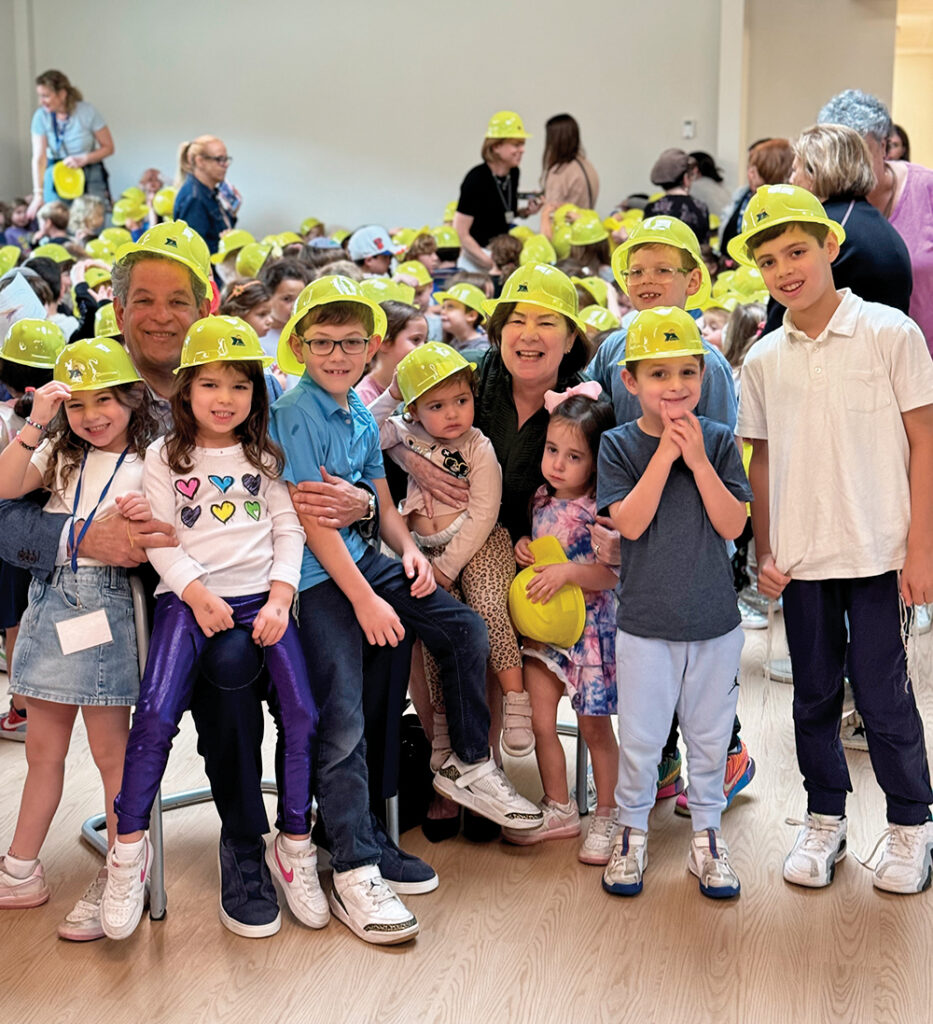
The new building features nine classrooms, multiple large gathering spaces, an Innovation Kitchen, Sensory Gym, conference room and a small group instruction room. The new classrooms house all of the nursery and pre-k, and one of the toddler classes. The other three toddler classes are in the main building but they share a connecting, communal room in the new building designated for toddlers, so they can all be “in an area that is solely theirs and come together in this shared space. The kindergarten classes remain in the main building giving them a first taste of being in the larger building with the older students as they transition to grade school,” explained Tannenbaum.
Each Early Childhood (EC) classroom is vibrant, organized and deliberate. The rooms are large, with the high ceilings continuing throughout the building, and large windows placed at a slightly lower height so the students can see out. The beautiful trees of the Moriah campus are visible through every window, inviting nature inside. “A lot of thought was put into the Woodland feeling and that natural, earthy theme carries throughout. The windows really bring that feeling to the classrooms, which was the designer’s goal,” said Director of Admissions Ariella Lazaros.
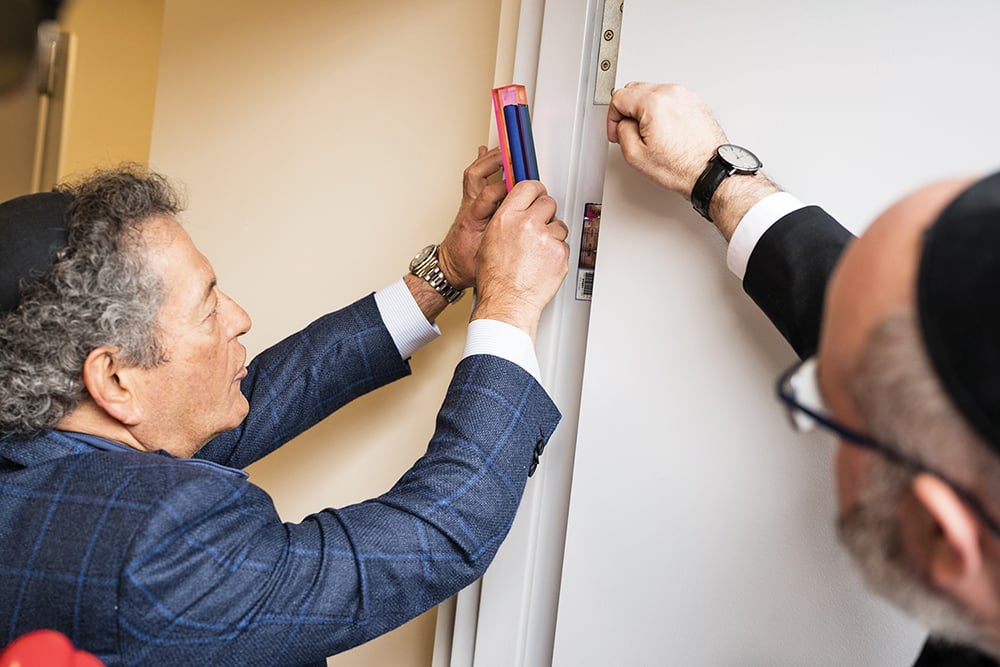
Tannenbaum commented, “We really wanted our space to reflect our remarkable Early Childhood program. Our teachers are incredible, our curriculum is excellent—and we wanted the space to match that.” Each room is color coordinated and all the equipment is child sized, with the height increasing with every grade. Every classroom also has its own child-size bathroom and filtered water dispenser for ease of access.
Tollinsky’s office has a wall of windows facing the communal space to encourage that open feeling. “We feel very strongly about hands-on learning and collaboration. The classroom doors are open and there’s a lot of back and forth among the teachers and staff. We’re a very close-knit family and everyone works together,” she shared.
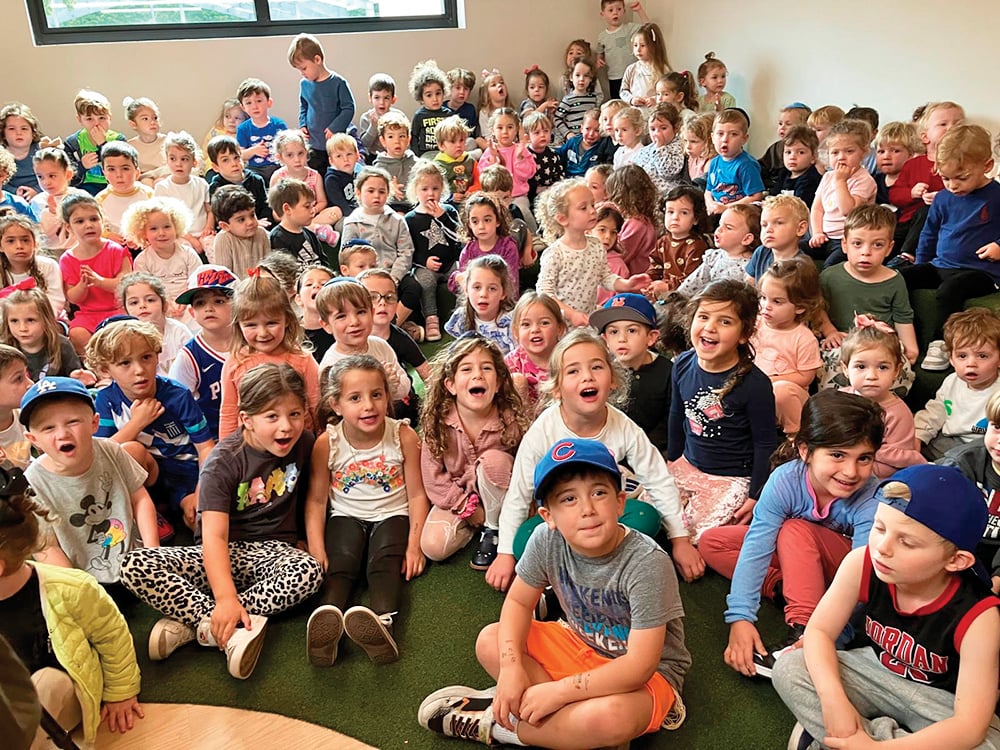
The large gathering spaces were crucial when planning this expansion, Tollinsky continued: “What we were missing from the other building was a larger space to have programming, like for Chanukah and Rosh Chodesh. In the main building, we had one space that we used for programming, gym, lunch … Now we have a designated space for those, as well as our end-of-year celebrations.” Those spaces are also used for indoor play in inclement weather and since the EC students play twice a day, every day, they get a lot of use.
The Innovation Kitchen is a real showstopper. The child-sized kitchen features low countertops and sinks where “students can do hands-on, experiential, sensory-focused learning. It really speaks to the program that everything is geared to the needs of the students,” shared Lazaros. Numerous windows allow tons of light to pour into the room, adding to the sunny atmosphere inside. Students will also conduct science experiments here, as the room functions as a STEM lab for young learners. The space is large enough to accommodate two to three classes at a time, so they can all work together on events such as a challah bake. All these communal spaces “give students a real feeling of community, their own mini community within the school,” said Tannenbaum.
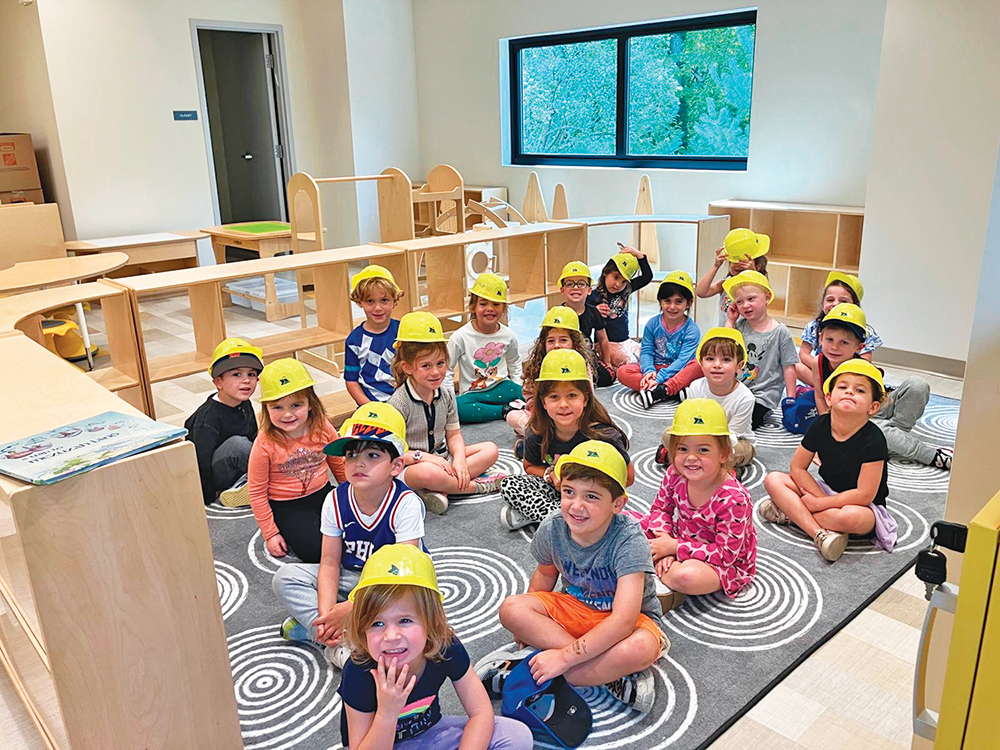
The Sensory Gym is still in progress and is being outfitted under the direction of the occupational therapist who sees children in the school. It can also double as an indoor play center when needed.
Another benefit of moving into the new building has been freeing up all the spaces early childhood had taken over in the main building. Until now the EC had spread into both STEM rooms, the music room—those services were put on mobile carts—and any space it could find to accommodate all its new students. Now those rooms can return to their intended functions.
Tannenbaum emphasized additional benefits: “Moving into this space has allowed the main building to be utilized for our individualized approach to learning. It has freed up space for four new classrooms for Gesher Yehuda students (small group learning), for speech and reading assistance. These students are now able to move out of the small nook-type spaces into real classrooms which is a better environment for their learning.”
The Chanukat Habayit reception on Sunday began with a small ribbon-cutting and tour for supporters of the campaign, with many donors seeing the space for the first time. The entire Moriah School community then joined to hang the mezuzah together, and participate in fun activities in the new space.
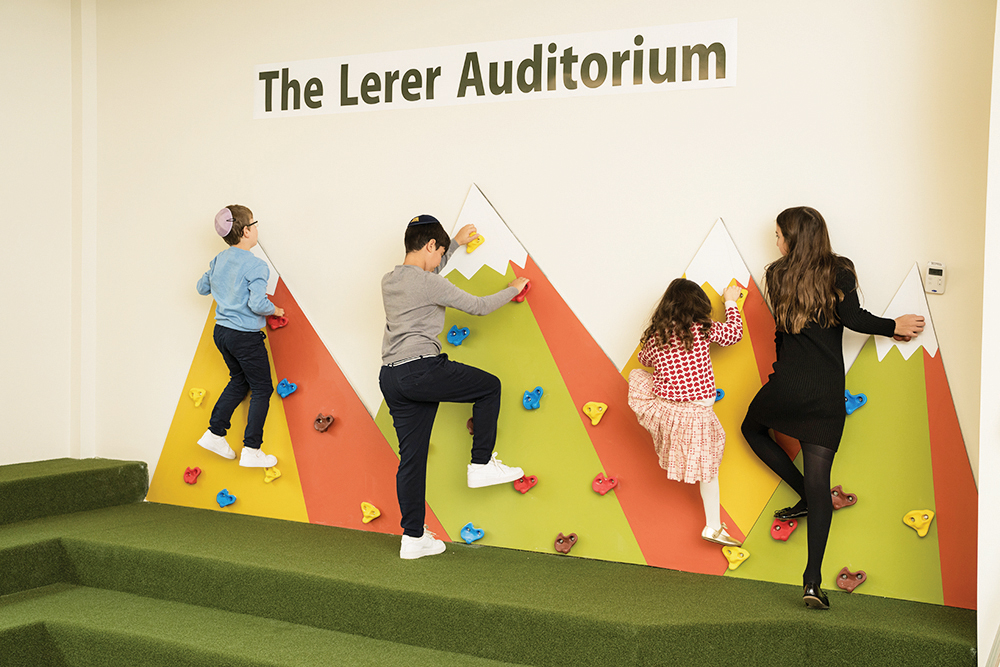
This exciting expansion has created a buzz throughout the school, even for older students who aren’t directly impacted. Eighth graders who volunteered as helpers for the Chanukat Habayit did so because they are part of the Moriah family and wanted to be part of this momentous day.
Rabbi Alter shared that the school is now in a position where the leadership can be “thinking about the future. We have a responsibility toward future students, not just the students in the school today. About 20% of our parent body are second generation families and we even have some who are starting to get third generation families. That creates a real feeling of a community school, and the fundraising has been impacted by that as well. We’re starting to think about endowments to make sure we are well positioned for the next 20-30 years.”










